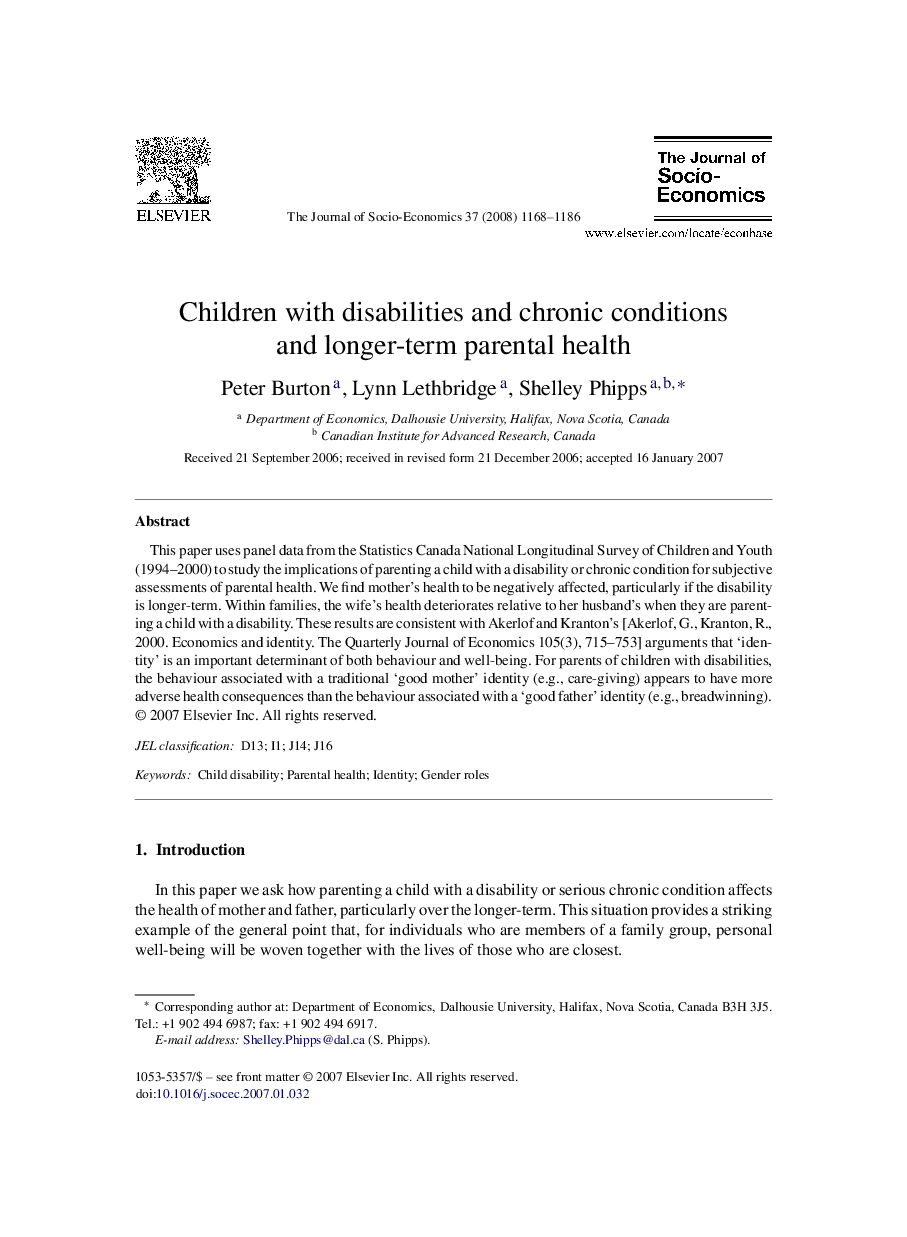| Article ID | Journal | Published Year | Pages | File Type |
|---|---|---|---|---|
| 970229 | The Journal of Socio-Economics | 2008 | 19 Pages |
This paper uses panel data from the Statistics Canada National Longitudinal Survey of Children and Youth (1994–2000) to study the implications of parenting a child with a disability or chronic condition for subjective assessments of parental health. We find mother's health to be negatively affected, particularly if the disability is longer-term. Within families, the wife's health deteriorates relative to her husband's when they are parenting a child with a disability. These results are consistent with Akerlof and Kranton's [Akerlof, G., Kranton, R., 2000. Economics and identity. The Quarterly Journal of Economics 105(3), 715–753] arguments that ‘identity’ is an important determinant of both behaviour and well-being. For parents of children with disabilities, the behaviour associated with a traditional ‘good mother’ identity (e.g., care-giving) appears to have more adverse health consequences than the behaviour associated with a ‘good father’ identity (e.g., breadwinning).
